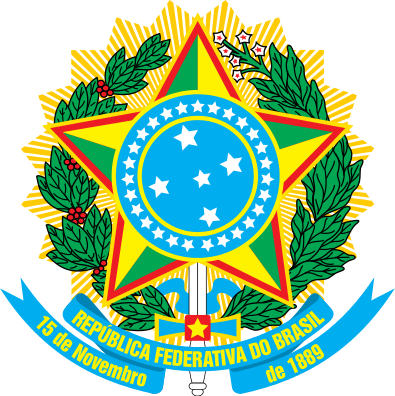Location
Following more than three centuries under Portuguese rule, Brazil gained its independence in 1822, maintaining a monarchical system of government until the abolition of slavery in 1888 and the subsequent proclamation of a republic by the military in 1889. Brazilian coffee exporters politically dominated the country until populist leader Getulio VARGAS rose to power in 1930. By far the largest and most populous country in South America, Brazil underwent more than a half century of populist and military government until 1985, when the military regime peacefully ceded power to civilian rulers. Brazil continues to pursue industrial and agricultural growth and development of its interior. Having successfully weathered a period of global financial difficulty in the late 20th century, Brazil was seen as one of the world’s strongest emerging markets and a contributor to global growth. The awarding of the 2014 FIFA World Cup and 2016 Summer Olympic Games, the first ever to be held in South America, was seen as symbolic of the country’s rise. However, since about 2013, Brazil has been plagued by a shrinking economy, growing unemployment, and rising inflation. Political scandal resulted in the impeachment of President Dilma ROUSSEFF in May 2016, a conviction that was upheld by the Senate in August 2016; her vice president, Michel TEMER, will serve as president until 2018, completing her second term.
Brazil is a federal presidential republic.
Source: CIA World Factbook
Members:
Resources
Displaying 51 - 55 of 180Decree No. 7.499 regulating Law No. 11.977 on the Programme “Minha Casa, Minha Vida”.
This Decree regulates Law No. 11.977 on the Programme “Minha Casa, Minha Vida” on land regularization in urban settlements. The amendments deal with the financial aspects and administrative procedures related to the regularization of urban settlements.
Amended by: Decree No. 7.825 amending Decree No. 7.499 on the Programme “Minha Casa, Minha Vida”. (2012-10-11)
Amends: Law No. 11.977 regulating the Programme “Minha Casa, Minha Vida” on land regularization in urban settlements. (2009-07-07)
Decree No. 7.795 amending provisions of Law No. 11.977 on the Programme “Minha Casa, Minha Vida” PMCMV.
This Decree amends provisions of Law No. 11.977 on the Programme “Minha Casa, Minha Vida” on land regularization in urban settlements. The amendments deal with the requirements for land use concession and financial aspects related to the regularization of urban settlements.
Amends: Law No. 11.977 regulating the Programme “Minha Casa, Minha Vida” on land regularization in urban settlements. (2009-07-07)
Decree of 29 August 2003 declaring of social interest, for the purposes of the agrarian reform, some rural properties in the States of Bahia, Espírito Santo, Maranhão and Minas Gerais.
This Decree, composed of 4 articles, declares of social interest, for the purposes of the Agriculture Reform, the following rural propterties: Fazenda Pitombeira, Fazenda Boa Esperanca II, Fazenda Boa Esperanca III, Fazenda Boa Esperanca IV, Fazenda São Judas Tadeu, Fazenda Santa Engrácia e Periperi. The Decree establishes the competence of the National Insitute for the Agriculture Reform (INCRA) to promote and supervise the expropriation of the aforementioned rural lands.
Decree of 26 September 2007 instituting Chapada Limpa extractive reserve, in Maranhão State.
This Decree is composed of five articles. It establishes the Chapada Limpa extractive reserve, located in the Municipality of Chapadinha, Maranhão State. The institution of an extractive reserve aims at granting a use and conservation of renewable natural resources traditionally used by resident people.
Decree of 12 March 2007 regulating the indigenous land Imbiriba, inj Bahia State.
This Decree is composed of two articles. It regulates administrative aspects of Imbiriba indigenous land, located in the municipality of Porto Seguo, Bahia State. In particular, it provides geographical coordinates of the protected area.


